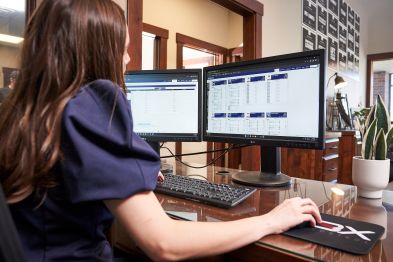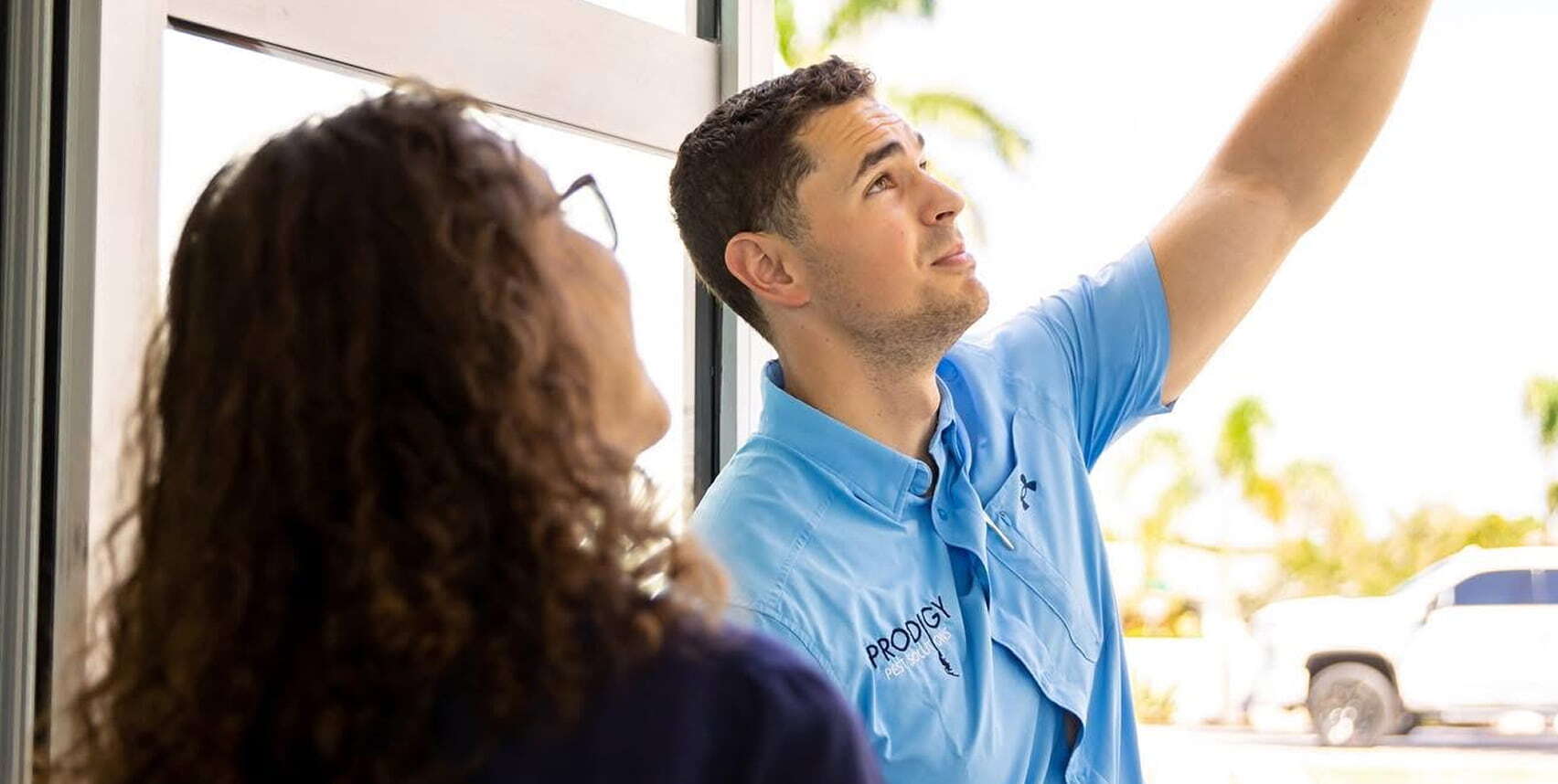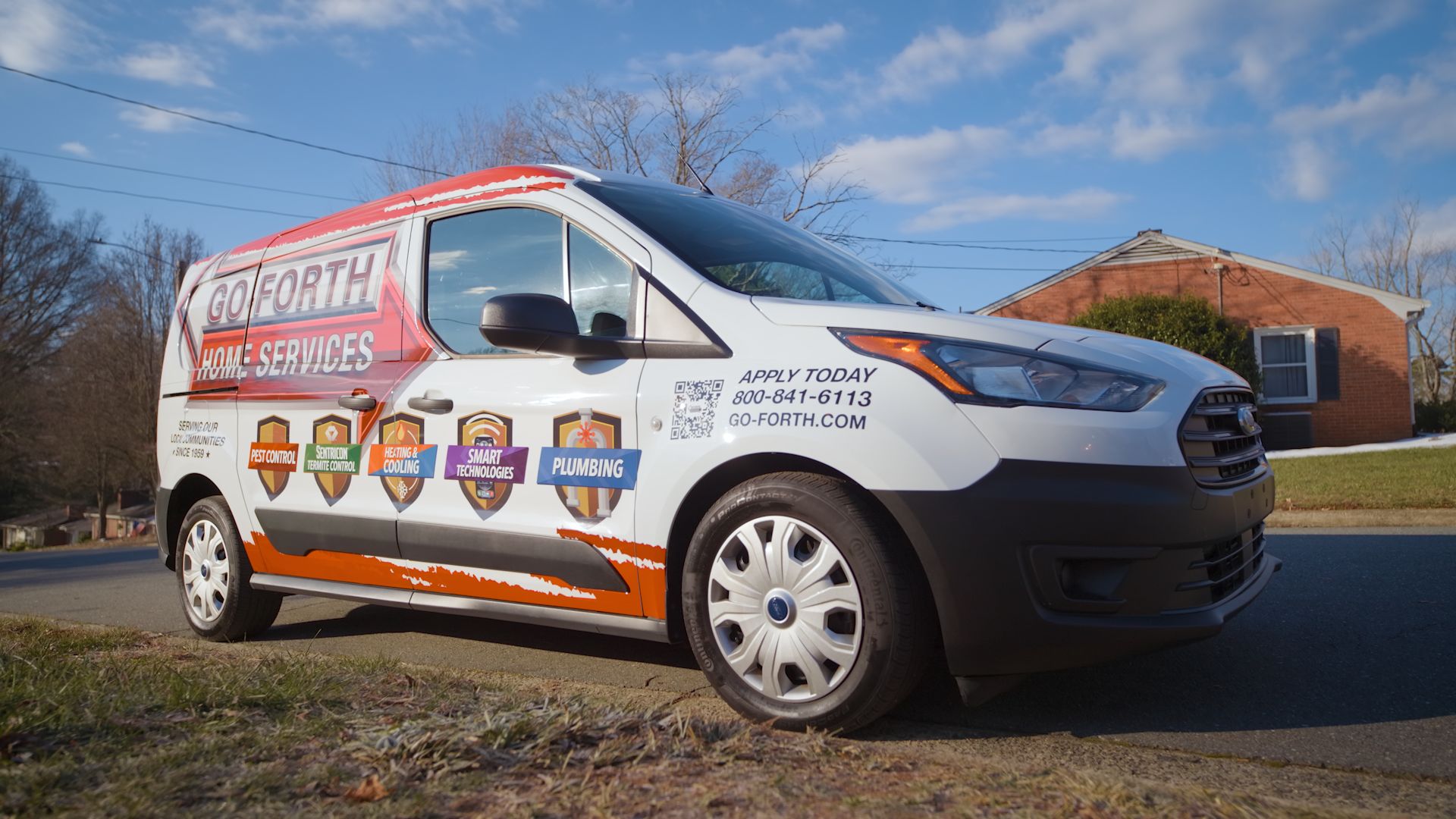Pest Control Supervisor: Job Description & Insights

The pest control industry is growing due to increased demand for residential and commercial pest control services. As infestations become more complex and public health concerns rise, we need more skilled professionals and stronger leadership than ever.
Supervisory roles are key to safe pesticide application, regulatory compliance, and team productivity. A pest control supervisor is the bridge between technicians and management, supporting field operations and service quality.
This guide outlines the job description of pest control supervisors, their qualifications, essential skills, and career growth so that job seekers and professionals looking to advance can get a clear direction.
What Are the Primary Responsibilities of a Pest Control Supervisor?
Pest control supervisors are key to pest control operations.
They balance fieldwork with administrative tasks to ensure smooth service delivery, technician performance, and regulatory compliance. As demand grows for reliable pest control services, especially in commercial settings, the need for strong supervision becomes even more important.
Whether you’re a current pest control technician looking to advance or a business owner hiring for this role, you need to understand the full scope of the pest control supervisor job description. This role requires more than field knowledge; it demands coordination, communication, a proactive approach to training, quality control, and customer service.
Typical pest control supervisor responsibilities include:
Supervising pest control technicians: Monitor field activity, provide support on complex infestations, and ensure company pest control procedures are followed.
Assigning daily service routes: Ensure logical routing using pest control routing apps to minimize downtime and travel.
Enforcing safety regulations: Ensure proper pesticide application in line with federal regulations, including safe use of sprayers, personal protective gear, and training on pest control methods.
Managing team performance: Conduct regular evaluations and coaching sessions to increase technician productivity. Identify performance gaps and mentors.
Customer service: Answer service complaints and explain integrated pest management (IPM) solutions clearly and calmly.
Training and onboarding: Guide new hires through company policies, pest control programs, and safety protocols. Build strong communication skills and technical ability from day one.
Equipment and inventory: Track pesticides, inspect tools, and ensure sprayers, foggers, and safety kits are operational.
Reporting to management: Keep accurate records on services delivered, technician performance, and pest activity trends.
Evaluating pest control methods: Assess the effectiveness of pest control strategies and make adjustments as needed to get the best results.
For more on how to increase your team’s productivity, read our post on boosting technician performance.
What Qualifications Are Required to Become a Pest Control Supervisor?
Most employers look for a combination of work experience, formal education, and leadership ability when hiring a pest control supervisor. Since this role impacts service quality and team performance, supervisors must show industry knowledge and people management skills.
Every employer’s requirements vary, but there are common expectations across the board. Whether you’re applying to a job posting or preparing for a job search, it’s worth understanding the minimum qualifications that make you stand out.
Here’s what most companies expect from qualified applicants:
High school diploma or GED: A high school diploma is the minimum educational requirement. Some employers may prefer additional coursework in entomology or business management.
Years of experience as a pest control technician: Most supervisors start in the field, and a minimum of 2–5 years of experience is typically required.
Supervisory or leadership training: Candidates with leadership training or prior team lead experience—inside or outside pest control—are often preferred.
Clean driving record and valid driver’s license: A clean and active driver’s license is essential, especially when using a company vehicle.
Knowledge of safety regulations and pest control procedures: Employers want individuals familiar with safe pesticide application, IPM strategies, and federal regulations. This includes knowledge of mechanical control methods and chemicals.
Additional certifications: Some states may require licensing or certification within a specific time frame after hiring.
If you want to progress in your pest management career, consider how more training and hands-on leadership experience can strengthen your qualifications.
What Skills Are Essential for a Pest Control Supervisor?
A good pest control supervisor needs more than field knowledge—they must lead, organise, and solve problems daily. From managing pest control operations to resolving complex infestations, the role requires a mix of soft and technical skills in integrated pest management (IPM).
Employers seek people who can support their team and deliver consistent customer service.
Many supervisors use digital tools to support them in this.
Software solutions like FieldRoutes pest control software help optimize schedules, monitor technician performance, and improve record keeping, so digital literacy is becoming more critical.
Here are the top skills required for this role:
Leadership and team management: Support, coach, and develop technicians while maintaining high service standards.
Time management and organisation: Plan technician routes efficiently and respond quickly to service issues.
Problem-solving: Diagnose pest problems and apply the proper pest control methods.
Customer service and interpersonal skills: Handle complaints, explain treatments clearly, and build trust.
Knowledge of pest control and chemicals: Apply safe pesticide application practices and understand EPA guidelines. This includes other insecticides and their role in pest management.
Digital literacy: Use scheduling, routing, and reporting software for efficient pest control services.
Communication skills: Communicate with team members, customers, and management.
Quality control and safety awareness: Uphold quality control standards and ensure all actions align with safety regulations.
Developing these skills will make daily operations easier and help supervisors move into more senior roles.
What Licenses or Certifications Are Needed for This Role?
Every pest control supervisor must have the right certifications to work legally and safely. Licensing requirements vary by state, but most roles require proof of pesticide knowledge, safe application practices, and regulatory compliance.
Employers expect supervisors to have current credentials and maintain them through continuing education. Keeping certifications up to date shows a commitment to safety, quality, and professionalism, especially when overseeing multiple pesticide application sites and supervising pest control procedures.
Common licensing and certification requirements include:
State-issued pest control license: Most states require pest supervisors to be licensed within 90 days of hire. Check with your state’s licensing board.
Certified applicator license: This license allows direct supervision of pesticide use and ensures knowledge of federal regulations and IPM techniques. Understanding chemical pest control methods is key to effective and safe pest management.
Ongoing continuing education: States often require annual or biennial training hours to renew certifications. These sessions usually focus on long-term control strategies in pest management.
Specialist certifications (optional): Certain markets may benefit from certifications in specific areas, such as termites or fumigation.
Up-to-date credentials improve compliance and build trust with customers and team members.
What Is the Average Salary for a Pest Control Supervisor?
The average salary for a pest control supervisor in the United States varies based on experience, location, and company size. According to Glassdoor, the average base salary is approximately $66,848 per year, with total compensation (including bonuses and incentives) reaching up to $88,597 annually.
Several factors influence these figures:
Experience Level: Supervisors with more years of experience in pest control operations typically earn more. Understanding various pest control methods and controls is key to effective pest management.
Company Size: Larger companies may offer more competitive compensation packages, including bonuses and benefits.
Geographic Location: Salaries can vary significantly by region.
Additionally, performance-based incentives and bonuses are common in the industry.
Supervisors who excel at managing pest control services, ensuring compliance with safety regulations, and maintaining high customer satisfaction are rewarded.
Gaining additional certifications in areas like integrated pest management (IPM) and expanding knowledge of pest control techniques can be helpful for those looking to increase their earning potential.
What Is the Career Growth Potential for a Pest Control Supervisor?
A role as a pest control supervisor is not an endpoint—it’s a springboard.
With the right work experience, leadership ability, and business acumen, supervisors can move into high-impact roles within their company or become independent professionals.
Many pest control operations promote from within for high-performing supervisors.
Because this role combines field expertise with personnel management, it develops the foundation for broader operational leadership or strategic roles. Those with strong problem-solving and communication skills can progress quickly.
Others choose the entrepreneurial path, using their knowledge of pest control, local market experience, and pest control methods to start their own service companies or consult for existing firms.
Career paths may include:
Branch Manager: Manage multiple teams, budgets, branch-level compliance, and customer satisfaction.
Operations Manager: Coordinate large-scale pest control programs and manage company-wide technician performance.
Regional Director: Lead teams across multiple locations and influence strategic planning.
Business Owner or Consultant: You can start a pest control company or offer training, auditing, and support services to other providers.
To learn how to grow your pest control business, visit our guide on business expansion strategies.
Supervisors who continue to learn and adapt open doors to long-term career success.
What Are the Biggest Challenges Faced by a Pest Control Supervisor?
Being a pest control supervisor is rewarding, but daily challenges require focus, adaptability, and strong interpersonal skills.
Supervisors must constantly balance technician performance, customer satisfaction, and compliance with changing laws and standards. Managing pest control operations at scale requires more than technical expertise—it demands action and leadership under pressure. With many moving parts from pesticide application safety to vehicle readiness and customer complaints, supervisors must stay ahead of potential disruptions.
Some of the biggest challenges include:
Technician scheduling: Balancing customer demand with technician availability and minimising drive time is complex. Tools like pest control routing apps can help.
Compliance: Keeping up to date with federal regulations, safety regulations, and proper record keeping is non-negotiable. Protecting the environment is key, so environmentally sensitive pest management practices are essential.
Underperformance: Identifying underperformance, providing support, and improving morale without losing productivity.
Customer escalations: Dealing with service complaints requires tact, clear communication skills, and a problem-solving mindset. Using common sense in pest control strategies, like sealing cracks and traps, can also help address customer concerns.
Change: Keeping up with new pest control methods, IPM practices, and customer expectations requires ongoing education.
Good supervisors use technology, training, and proactive communication to manage these pressures and deliver consistent, quality pest control services.
How FieldRoutes Helps Pest Control Supervisors Streamline Operations
Managing a team of technicians, scheduling appointments, ensuring compliance, and keeping customers happy can quickly become overwhelming for even the most experienced pest control supervisor. The right software can turn chaos into clarity. FieldRoutes gives supervisors the tools to stay organized, efficient, and in control of daily pest control operations.
By automating routine tasks and centralising data, FieldRoutes helps supervisors overcome some of the biggest challenges in the field—from record keeping and technician routing to tracking productivity and enforcing safety regulations. Whether juggling pesticide application schedules or dealing with a surge in infestation complaints, digital tools make every task faster and more accurate.
Here’s how FieldRoutes helps:
Automated scheduling and routing: Assign routes quickly, cut down travel time, and make adjustments in real-time. Visit our article on pest control routing apps to learn more.
Performance tracking: Track each pest control technician’s performance using built-in metrics. Identify underperformance early and offer targeted coaching.
Real-time communication: Keep team members informed through mobile notifications, job updates, and alerts. This improves response time and coordination.
Custom reporting: Generate reports on service history, product usage, and team productivity to support better quality control and decision-making.
Compliance and documentation: Store and manage digital records to comply with federal regulations and simplify audits.
Inventory management: Track pesticides, sprayers, and other tools to ensure technicians are fully equipped each day. Manage trap crops as part of your pest control strategies to divert pests and simplify their management.
With FieldRoutes, supervisors have control and visibility across every aspect of their operation, so they can focus on delivering outstanding service, not paperwork.
It’s Your Turn Now
Becoming a pest control supervisor is an excellent path to leadership, career stability, and long-term industry growth.
As pest management evolves, so do the opportunities for motivated professionals with strong communication skills, technical knowledge, and a desire to lead. The transition to a supervisor role also highlights the importance of controlled pest management strategies to ensure effective and sustainable practices.
Ready to take the next step?
Explore how the FieldRoutes Operations Suite can support your transition.
Schedule your free demo and see how the right tools make all the difference.
Frequently Asked Questions (FAQs)
Can I become a supervisor without a college degree?
Yes. Most employers require a high school diploma or GED, not a college degree. What matters more is your work experience as a pest control technician, leadership ability, and understanding of pest control procedures. This includes knowing what IPM means and how it means long-term prevention by managing ecosystems. You can advance by building your skills and earning the required certifications.
Certifications are important as they often cover the materials used in pest control, so you choose and apply them to minimize risk to human health and the environment.
Is a pest control supervisor's role more hands-on or managerial?
Both. Supervisors manage technician teams, schedules, and compliance and jump in on complex jobs. Accurate pest identification is key to determining management needs and developing pest control strategies. The role is a mix of problem-solving, coaching, and occasional fieldwork, so it’s ideal for those who enjoy leadership and direct service.
Do supervisors still perform fieldwork?
Yes, especially in smaller teams or when dealing with challenging infestations. While the role is mainly supervisory, many still do inspections, apply pesticides, or assist technicians as needed. Balancing both responsibilities is key to effective pest control operations.





